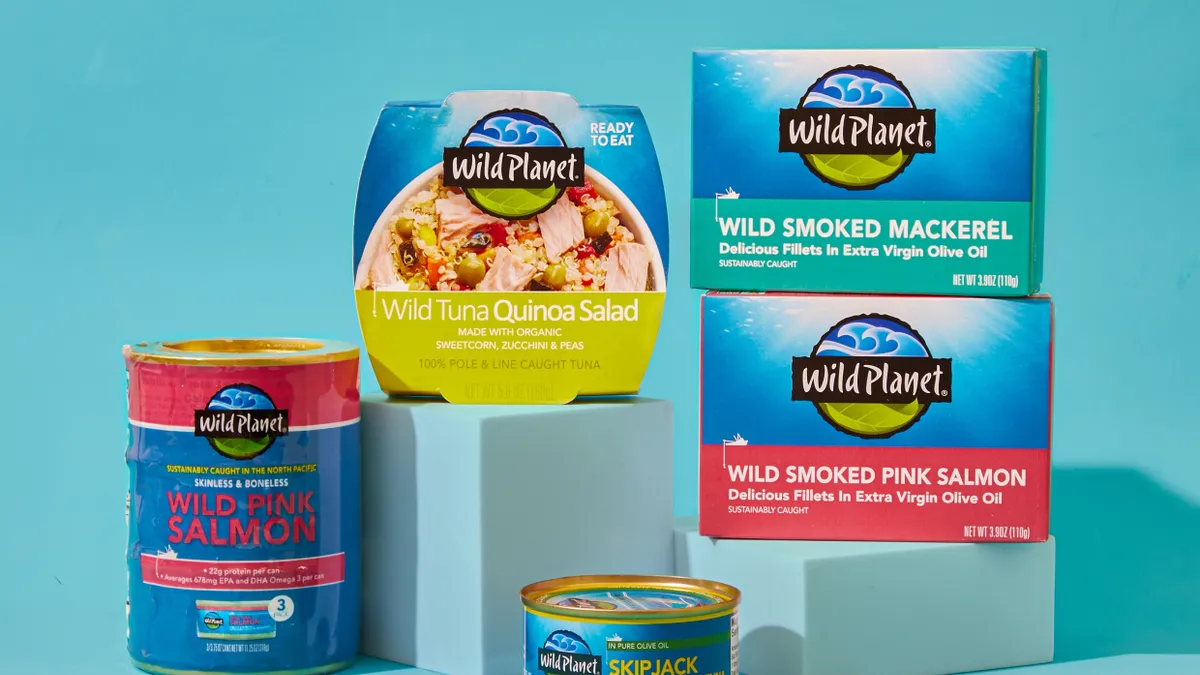Wild Planet is debuting a line of seafood items the company claims have less of an environmental impact than traditional offerings.
The sustainably caught lineup includes two fillets, Wild Smoked Pink Salmon in Extra Virgin Olive Oil and Wild Smoked Mackerel Fillets in Extra Virgin Olive Oil; two canned items, Skipjack Solid White Light Tuna and a three-pack of Wild Pink Salmon; and a ready-to-eat meal for lunchtime, Wild Tuna Quinoa Salad.
Wild Planet said the fish is sustainably sourced from the North Pacific Ocean.
The California-based company, founded in 2005, says it is the first large-scale sustainably sourced seafood brand. Wild Planet partners with small fishermen who use practices such as 100% pole and line fishing and selective harvesting, according to a press release. The company also said the fishers target one species at a time to avoid culling others unintentionally.
“Since the company’s inception, it has been our goal to spread awareness about the importance of knowing where your seafood comes from and the nutritional value canned seafood can provide, all while making it more accessible to consumers,” Bill Carvalho, Wild Planet’s founder, said in a statement.
Carvalho, a veteran of the seafood industry, told Forbes in 2021 he founded the company after witnessing unsustainable practices for years in the commercial fishing industry. In 2021, it was acquired by Milan-based sustainable foods conglomerate Bolton Group, which said it aimed to accelerate growth for the seafood company.
Wild Planet said its products — from canned tuna to ready-to-eat tuna pasta salad meals — are sustainably sourced. With the latest launch, it is aiming to expand its retail footprint and make sustainable options more accessible to consumers while educating them about where the fish originated from.
The new items are available at Whole Foods, joining other Wild Planet products currently sold at the retailer. The company said it partnered with the grocer because of its commitment to sustainability. Wild Planet did not indicate whether it will launch the products at other stores.
The launch comes amid greater attention paid to the environmental impact of the seafood sector due to shrinking fish populations and global climate change.
According to a Morning Consult poll of more than 2,100 consumers released last month, four in five respondents said the health of the ocean and its ability to provide sustainable seafood affects them. When asked about their seafood purchases, 68% of those surveyed said they would only commit to buying sustainably sourced fish products.
This figure, while representing a majority of respondents, was still less important to them than price and raising products without chemical fertilizers. But Morning Consult added that 82% said humans have a responsibility to ensure sustainable seafood for future generations.












